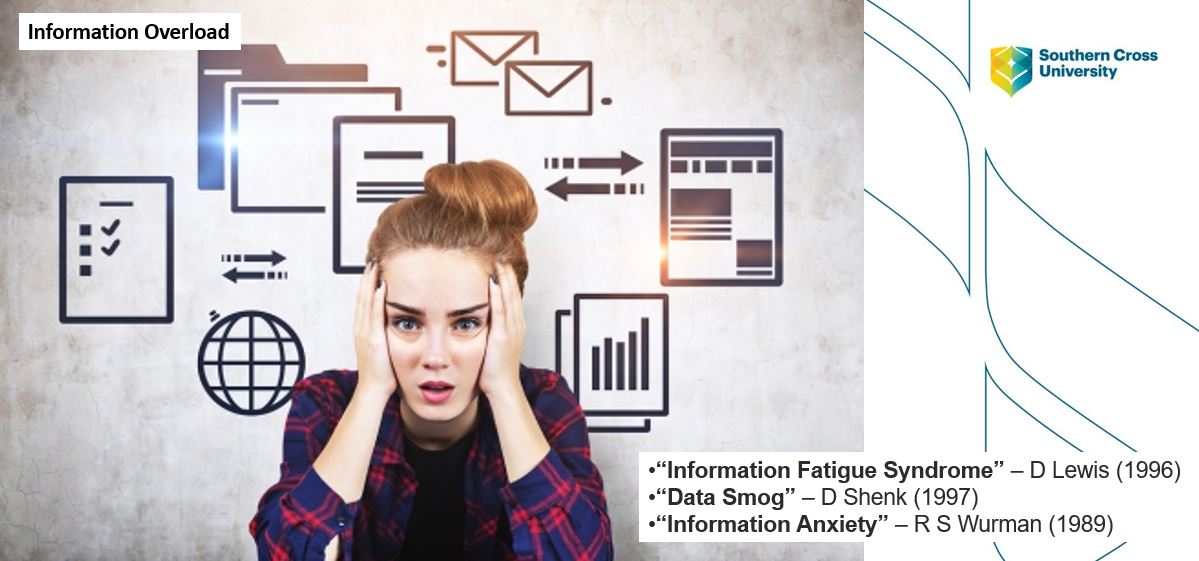Information overload syndrome , when the information becomes too much. We are so used to the information that we don’t even notice how it takes our lives like an avalanche. In bed in the morning we check Facebook, then the morning blocks, the radio in the car, at work – too. And all these ads that are fighting for our attention – vomiting for negative time tons of information. This state of constant reception of information is not called “modern life”, it is an overload for the brain with dangerous consequences.
Only a few decades ago in our country the information seemed to be one of the biggest deficits. People lived in a very limited information environment, and then, literally every bit of knowledge was taken up with incredible interest and reverence. Hardly anyone then imagined that in the very foreseeable future, humanity will be exposed to the radically opposite reality – that of information overload, capable of leading us to absolute exclusion from the outside world and inability to cope with simple life situations without first reading piles of books, articles and publications.
In fact, as early as 1970, in one of his books, the American futurist (scientist predicting the future) Alvin Toffler (“Shock of the Future”) mentioned the phenomenon of “information overload.” But what did the author mean? And this leads to increasing difficulty in making adequate decisions and dealing with the challenges around us.
How to recognize information overload

If you quickly forget the information you just received and have the feeling that your day is completely empty, for example, you have read all day on the Internet or watched TV;
If the information around you is so much that instead of helping you, it reduces your ability to concentrate and work (ie to do something from start to finish without interrupting yourself);
If disabling a visibly redundant app on your phone or deleting your social network account makes you anxious that you’re going to miss something important;
If countless thoughts, pictures, impressions are feverishly chasing in your mind. Round the clock.
If solitude and rest for more than a day or two become a nightmare for you, not a means of relaxation;
If you hear more and more often that you don’t have enough time, but you haven’t really done anything significant and different from reading – from not one and two, but ten sources, for example;
Then you certainly fall into the category of information-harassed.
Anyone can fall into the trap of information overload – from idlers who wonder how to kill time to really active and busy people for whom reading, learning new things and awareness are a priority.
From young children to adults – people who are just getting acquainted with the limitless possibilities of the Internet and the media – in all their varieties and forms. Particular attention should be paid to this syndrome for students. But regardless of age and social status, it has been proven that this type of overload brings with it a number of damages to our body, brain and productivity. And since such a “phenomenon” is inevitably another type of long-term stress for our body, it can cause a number of troubles: insomnia, disorders of the central nervous system, heart problems, decreased immunity and so on. When it comes to productivity, over-awareness is a hindrance again.
If you honestly and objectively calculate how much time you spend reading absolutely insignificant things, you will find that the time you use to work – full and concentrated, decreases by at least a few hours a day. And last but not least – a lot of information kills one of our very valuable talents: human intuition. The fact is that we are born with an extremely strong intuition, but for one reason or another, over the years, we dull it to the point where it cannot benefit us. And even if we don’t want to admit it, indiscriminate information is one of the reasons. To our delight, intuition, productivity, and even health can be returned to normal if, for some reason, you have allowed a lot of information to do you more harm than good.
How to deal with information overload

Prioritize and stick to them. Honestly, which is more important to you: to be informed about all the issues and news from the world or maybe yourself? Or maybe your family? And the pleasure of life? If you don’t find time for the really important things in your life, it’s time to change tactics. And this will not happen if you check your Facebook or email every 10 minutes.
Get rid of unnecessary sources of information. When I decided to part with my TV some time ago, such a step seemed like a huge feat. I was so used to the noise from the screen and the bad news that I didn’t seem to be watching, but somehow they always managed to get stuck somewhere deep in my mind that television seemed like a part of me. I solved the problem radically by parting with the TV once. It turned out to be completely painless and very, very useful for me and my whole family. Train your brain. Solve crossword puzzles, learn foreign languages, read fiction. These are all exercises that train your ability to concentrate, your memory and logic, develop your imagination – in spite of information overload. Choose your sources. Believing everything you read on the web and in the media is like trusting the advice and opinion of everyone you meet on the street.